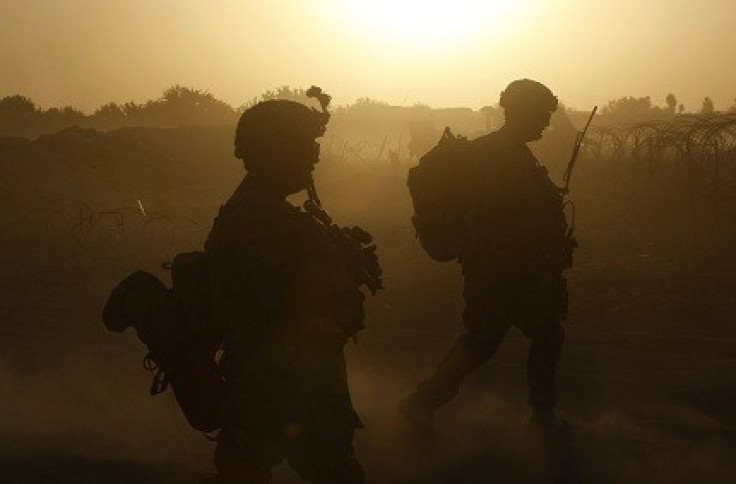New CIA Chief Leaves Afghanistan on a Low?

U.S. General David Petraeus, the new director of the Central Intelligence Agency, handed over command of U.S. and NATO-led troops in Afghanistan on Monday, a day after a gradual process of transferring security to Afghan forces began.
Petraeus, was credited with helping overcome the civil war in Iraq, and took over in Afghanistan on July 4, 2010.
The general is now moving to Washington to take over as CIA director as part of a wider shake-up of senior security officials.
During his year in Afghanistan, Petraeus has overseen a "surge" of 30,000 extra U.S. forces which helped stop the momentum of a growing Taliban-led insurgency, especially in the Taliban heartland in the south, according to U.S. officials.
While the U.S. and NATO countries have recently insisted on the numerous achievements made in rebuking the Taliban and weakening their following and force of actions, a string of attacks and the murder of high profile and close allies of President Karzai in recent weeks, might have proven them wrong.
Violence across Afghanistan in 2010 hit its worst levels since the Taliban were ousted by U.S.-led forces in 2001, with civilian and military casualties hitting record levels, and the figure for 2011 risks being even worst, rights groups warn.
"We should be clear-eyed about the challenges that lie ahead," Petraeus said at a ceremony to mark the change of command of the NATO-led International Security Assistance Force (ISAF) to U.S. Marine Corps General John Allen.
On Sunday, ISAF handed security control over to Afghan forces in central Bamiyan province, marking the start of a gradual transition process that will end with all foreign combat troops leaving Afghanistan by the end of 2014, but proving that the situation is far from being under control, it revealed on Monday that three of its troops had been killed by a homemade bomb in Afghanistan's east.
Bamiyan was the first of seven areas to be handed over during the first phase of transition and another district in eastern Laghman province will be handed over to Afghan forces Tuesday.
Lashkar Gah, the capital of volatile Helmand province and the most contentious of the first seven areas, will be handed over Wednesday.
"Our military presence will diminish, as it should, after 2014 but our partnership will remain long after," Admiral Mike Mullen, the chairman of the U.S. Military's Joint Chiefs of Staff, told the ceremony at ISAF headquarters in Kabul.
While foreign troops under Petraeus' command made significant gains over the past year, the Taliban and other insurgents have still been able to launch attacks in major centres and the number of targeted killings of Afghan officials has grown significantly, proving that for the Afghans, the fight against terror is far from over.
Late Sunday, gunmen killed an adviser to Afghan President Hamid Karzai, days after Karzai's half-brother was assassinated in Kandahar province, the birthplace of the Taliban.
Those killings have sent chilling warnings to political leaders about the reach of the Taliban, who have shown an ability to adapt their tactics even as their strength has been diminished and prove that the U.S. and Nato's efforts have only partially paid off at best.
© Copyright IBTimes 2024. All rights reserved.





